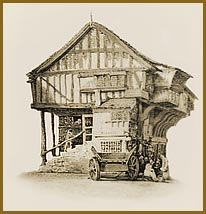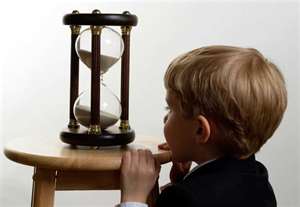Three days to go before 2012, and nobody knows what the future will bring. Who cares? Some will think that, and not give it another thought, but continue with the challenges of living. It could be a good way to be, especially if life is lived out well. Who cares, because we are cared for by a loving being; there is nothing to worry about. St. Paul uses the metaphor of building a house with our life: and we have the famous nursery rhyme in England that comes from the 16th Century: ‘The House That Jack built’ – not well built – but ‘Gerry-built, we say.
 |
My instinct is to try to build something better and solid with life.
I care because as one gets older, the thought enters my head: how many more New Years will I see? There is a loving being who has a plan for me, for you, for each one of us. Cardinal Newman put it beautifully and realistically.
God has created me to do Him some definite service. He has committed some work to me which He has not committed to another. I have my mission. I may never know it in this life, but I shall be told it in the next. I am a link in a chain, a bond of connection between persons. He has not created me for naught. I shall do good; I shall do His work. I shall be an angel of peace, a preacher of truth in my own place, while not intending it if I do but keep His commandments. Therefore, I will trust Him, whatever I am, I can never be thrown away. If I am in sickness, my sickness may serve Him, in perplexity, my perplexity may serve Him. If I am in sorrow, my sorrow may serve Him. He does nothing in vain. He knows what He is about. He may take away my friends. He may throw me among strangers. He may make me feel desolate, make my spirits sink, hide my future from me. Still, He knows what He is about.
God has led me through my life to know Him. He has given me the gift of making choices that have led Him to be very real; and so it really is not difficult to have him in mind in all the events of everyday life. It is very easy however to forget him, especially when things are going easily for me, and there is the challenge of life.
Archbishop Patrick Kelly in his talks and letters points out many good things and one thing he underlines is in the Pope’s encyclical, “God is Love”.
We have come to believe in God’s love: in these words the Christian can express the fundamental decision of his life. Being Christian is not the result of an ethical choice or a lofty idea, but the encounter with an event, a person, which gives life a new horizon and a decisive direction. Saint John’s Gospel describes that event in these words: “God so loved the world that he gave his only Son, that whoever believes in him should … have eternal life” (3:16).
 |
The phrase, “being Christian is the encounter with an event, a person…” makes me realise that it is events of my everyday life that are really important. That is where we meet Jesus.
When the Word of God became flesh in Mary in Nazareth and was born a baby in Bethlehem it became much easier to see God in every day events than before. Our compassionate God understands and heals the weaknesses and sins of human beings. We are all chosen in the Word of God before creation began (Ephesians 1: 4). When Jesus taught that whatever we do to the least of his brothers and sisters we do to him (Matthew 25, 40) we can understand that every encounter with another is an encounter with Jesus. The Epistles teach us that all things, all events, all thought, all of life is held together in Christ Jesus (Colossians 1, 15-17). In other words in what happens to us we can meet and reflect on God who is all love, all mercy, all truth, all beauty, all knowledge and so forth. The invitation is to be led through the events of life, in union with God to fulfil the particular task that God wants. That is when, in the present moment, I can ‘hallow his name’: that is when I can forgive myself and others in His mercy, and so receive God’s mercy; that is when I can do good and do his work.
There may be a few more years for this blogger: there may not. But I want to live them well; the difficulty is to live continually in union with God. However each day there is the beautiful prayer that by good fortune monks and priests and sensible people say often: the Our Father: “Thy will be done” is one of the greatest phrases of all time. Let it be done in 2012 better and better, and if I slip a bit, give me the courage to get up and find that will again. Then may a very beautiful house be built, not ‘The House That Jack Built’!
![thumbnail[7]](http://176.32.230.2/stmarysblog.co.uk/wp-content/uploads/2011/12/thumbnail71.jpg) |
In e-mailing the blog, ‘Word Press’ tends to distort the original formatting of the document. Readers may wish to visit the website www.stmarysblog.co.uk to read it in its original format.
![200px-HolyFamilybyGutierrez[1]](http://176.32.230.2/stmarysblog.co.uk/wp-content/uploads/2011/12/200px-HolyFamilybyGutierrez11.jpg)


